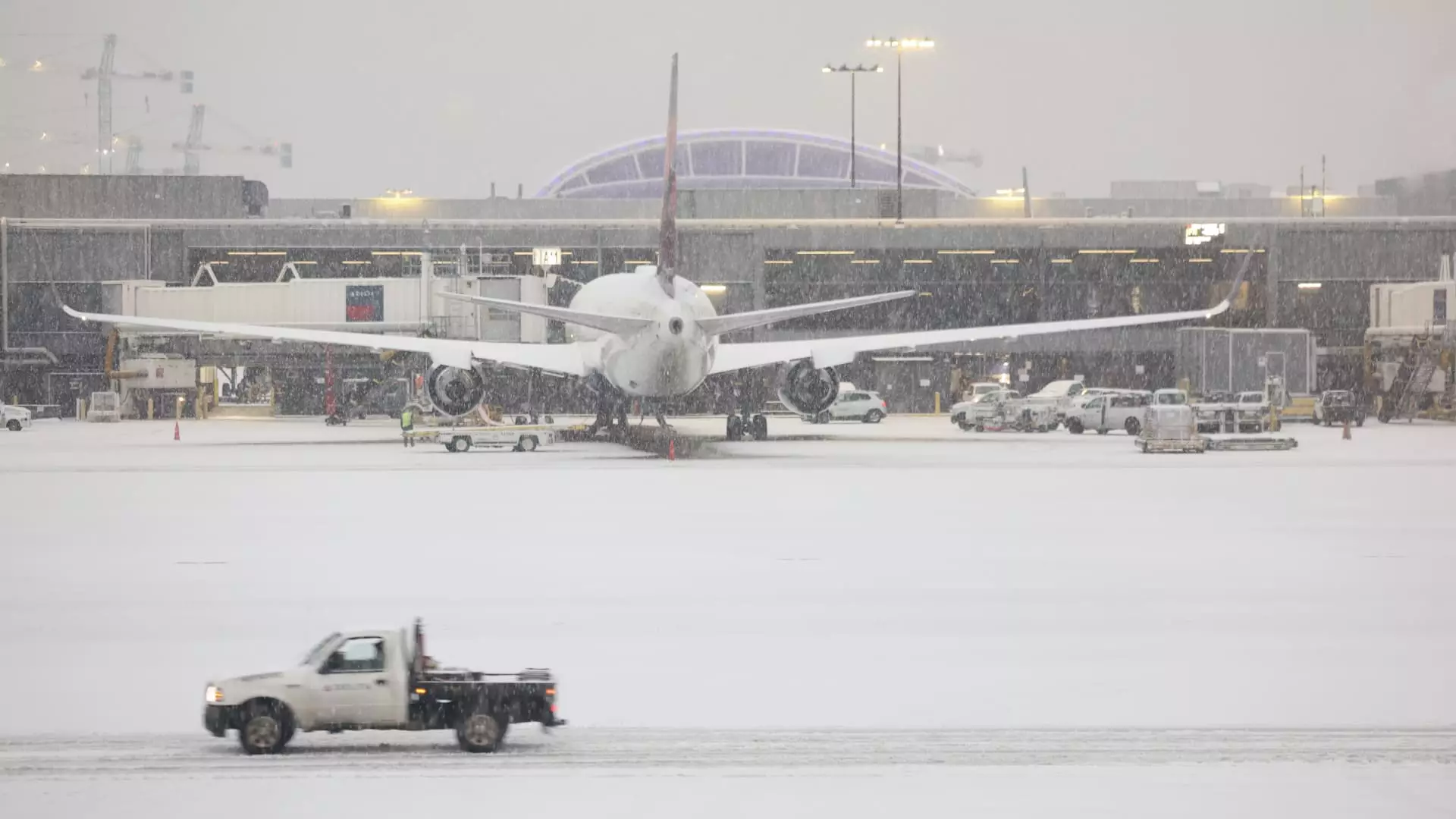In a grim saga for air travelers, over 2,000 flights were scrapped on Friday due to an extreme winter storm wreaking havoc in the Southern United States. The ripple effect of this storm extended beyond just cancellations, with an additional 2,000 flights facing delays. This substantial disruption highlights the vulnerability of air travel to inclement weather, particularly in regions that are not typically accustomed to severe winter conditions.
Among the incidents that marred the travel experience was a significant safety scare involving a Delta Air Lines Boeing 757-300. As it prepared for takeoff from Hartsfield-Jackson Atlanta International Airport—often touted as the world’s busiest airport—an engine issue prompted swift action. The aircraft had to halt its takeoff, leading to the evacuation of 201 passengers and seven crew members via emergency slides. Delta’s official statement emphasized adherence to safety protocols, reiterating their commitment to passenger safety. They expressed regret to those affected, promising to provide assistance in getting them to their intended destinations efficiently.
The impact of the storm was particularly severe at Atlanta’s Hartsfield-Jackson airport, a critical hub for Delta Air Lines. Reports indicated that nearly 900 flights associated with this airport were canceled, accounting for around 40% of the day’s planned flights. Moreover, over 400 flights experienced delays. In an effort to manage the escalating situation, airport officials instituted a groundstop, preventing inbound flights from adding to the congestion on the ground. Groundstops are important tools for airport management, designed to prevent operational overload during crises like harsh weather.
The ramifications of the storm weren’t isolated to Atlanta; they extended to other major airports like Dallas/Fort Worth International and Charlotte Douglas, where American Airlines operates key hubs. These airports also witnessed significant cancellations, with over 1,000 flights disrupted due to the storm. The culmination of these cancellations reflects the compounded issues airlines face when adverse weather conditions dominate.
In the face of widespread cancellations and disruptions, airlines like Delta, Southwest, and American Airlines took measures to alleviate the burden on affected travelers. Many carriers opted to waive change fees and fare differences, a crucial step in addressing customer concerns during such unprecedented situations. These measures are both a logistical necessity for airlines aiming to retain customer loyalty and a moral obligation to ensure that stranded passengers are treated with compassion during challenging times.
As winter storms become more frequent and intense, airlines must reassess their operational strategies and communication approaches to manage disruptions better. Developing robust contingency plans and improving weather forecasting partnerships could mitigate risks associated with extreme weather. Ultimately, the recent events serve as a reminder of the fragility of modern air travel in the face of nature’s unpredictability and the critical importance of maintaining passenger safety and service quality.


Leave a Reply